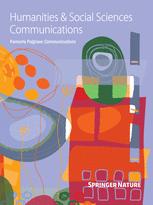REDD+ interventions can help both people and forests adapt to climate change by conserving or enhancing biodiversity and forest ecosystem services. However, additional adaptation measures might be needed, such as the protection of agriculture and livelihoods and the development of fire management strategies. Such measures could support the sustainability of REDD+ interventions and the permanence of carbon stocks by preventing activity displacement and induced deforestation and by limiting or avoiding damage to the ecosystem from extreme weather events. To design community-based adaptation interventions and assess their potential outcomes within the Community Forest (Hutan Desa) REDD+ project area in Setulang Village, Malinau District, Kalimantan,village representatives were involved in a bottom-up, stakeholder-focused process. A social return on investment framework was applied. Community members discussed climate and non-climate challenges and the effectiveness of their current coping strategies. Adaptation interventions were then conceived and planned, using future visioning exercises. Two interventions were prioritized: development of rattan handicraft enterprises and rubber agroforestry. Challenges and adaptation interventions were also discussed with stakeholders from relevant district organizations (e.g. local government agencies) through individual semi-structured interviews. Projected future climate scenarios, the sensitivity of key resources and adaptive capacity were also discussed. This resulted in a holistic understanding of the costs, benefits, opportunities and challenges associated with implementing the selected adaptation strategies not only in the target area, but also in the district more broadly. The Community Forest (Hutan Desa) project in Setulang, Malinau, is facilitated by the FORCLIME programme of the Deutsche Gesellschaft für Internationale Zusammenarbeit (GIZ) GmbH. This study was conducted by CIFOR in collaboration with the GIZ, with a grant from the Federal Ministry for Economic Cooperation and Development (BMZ) Germany.
Download:
DOI:
https://doi.org/10.17528/cifor/004231
Altmetric score:
Dimensions Citation Count:

Publication year
2013
Authors
Pramova, E.; Locatelli, B.; Mench, A.; Marbyanto, E.; Kartika, K.; Prihatmaja, H.
Language
English
Keywords
adaptation, agroforestry, climate, climate change, community forestry, deforestation, ecosystem services, emissions, environmental degradation, fruit trees, interplanting, investment, organizations, returns, stakeholders
Geographic
Indonesia























